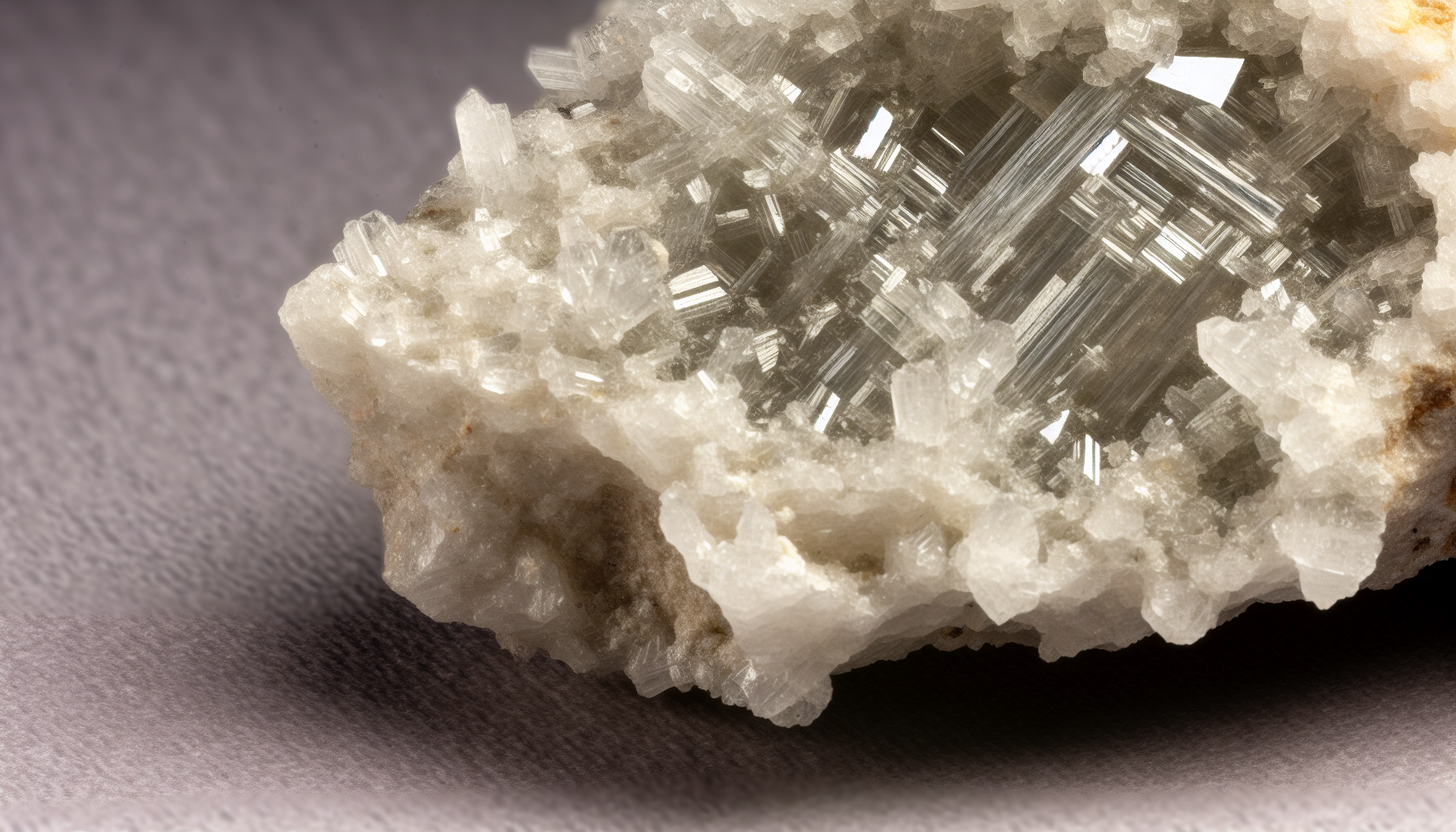In the quest for eternal youth, the spotlight often shines on the myriad of supplements promising to turn back the clock on aging skin. Among the most debated are collagen and silica, each holding a vital key to the fountain of youthfulness for our skin, hair, nails, and overall connective tissues. The question, "Is it better to take collagen or silica?" opens a Pandora's box of scientific literature, clinical studies, and anecdotal evidence, making it a fascinating yet complex decision for anyone looking to enhance their skin's vitality and resilience. This article dives deep into the heart of this debate, leveraging terms such as collagen production, skin elasticity, healthy skin, dietary silicon intake, and the essential building blocks of our connective tissue to unravel the mystery.
Collagen, the most abundant protein in our bodies, is the scaffolding that keeps our skin firm, joints supple, and bones strong. However, for some of us, as early as our mid-twenties, collagen production begins to wane, leading to the unwanted hallmarks of aging: wrinkles, sagging skin, and brittle nails. Enter silica, a mineral with great therapeutic potential, touted for its ability to support collagen synthesis and prevent breakdown. This crucial nutrient, found in forms like orthosilicic acid, boasts higher bioavailability and is essential for healthier hair, stronger bones, and youthful skin. But can ingesting collagen supplements or enhancing silicon dioxide intake through diet and supplements truly make a big difference in our skin's health and appearance? Through a conversational, informative, and friendly exploration of these substances' roles in human health, their absorption, and the synergy between dietary intake and supplementation, we aim to guide you through making an informed choice that could redefine your skin health regime.
Key Takeaways
- Collagen is vital for skin, muscle, and bone health, but its production declines with age, leading to signs of aging like wrinkles and sagging skin.
- Silica is essential for optimal collagen synthesis and helps prevent collagen breakdown, contributing to skin strength and resiliency over the long term.
- Combining collagen with silica supplements can maximize skin health benefits, and their effectiveness is further influenced by dietary silicon intake and lifestyle choices.
Understanding Collagen and Its Role in Skin Health

Have you ever pondered what maintains your skin’s firmness and prevents wrinkles? The secret is a protein known as collagen. Making up about 30% of your body's protein, collagen is the backbone of skin strength, supporting your skin, muscles, bones, and connective tissues. It’s like the glue that holds these structures together; most collagen supplements bank on this fact.
Regrettably, like many good things, collagen production declines as we age. The collagen and elastin fibers become thinner and looser, causing the skin to lose elasticity and form wrinkles. Additionally, our body’s fibroblasts, cells responsible for producing natural collagen, become less efficient, leading to thin and weakened skin.
The Importance of Collagen for Connective Tissues
The function of collagen isn’t confined to skin health. It’s a crucial component in preserving the structure and strength of connective tissues such as connective tissue in:
- skin
- muscles
- bones
- tendons
Picture collagen fibers as a robust scaffold providing structure, support, and strength to these tissues, promoting healthier hair, skin, nails, and bone formation as they produce collagen. Collagen production is vital for sustaining this supportive framework, ensuring these tissues remain robust and healthy.
But, a decrease in collagen levels can lead to:
- Less collagen synthesis in the skin
- Muscle stiffness
- Weakening of blood vessel walls
- Joint issues
- Osteoporosis and low bone density
Collagen Production Decline with Age
Beginning in your twenties, there is an approximate 1% annual decline in collagen production. The effects? Dull skin, wrinkles, sagging - the telltale signs of aging. Collagen, the most abundant protein in the human body, provides structure and support to the skin. However, the results can be unwelcome when your body produces less collagen.
From saggy skin to the emergence of annoying wrinkles, the decrease in collagen directly impacts skin health.
Delving into Silica: Its Functions and Benefits

Silica, refusing to be overshadowed, steps into prominence. Also known as silicon dioxide, silica plays a pivotal role in collagen production and maintenance. Ensuring collagen is produced properly, silica contributes to skin strength and firmness.
Furthermore, silica doesn’t sit idle while collagen breakdown occurs. It actively prevents rapid collagen decomposition, thereby enhancing skin firmness. It’s like a guardian angel for your skin, ensuring the continuous production of collagen.
Silica is an Essential Building Block for Collagen
Silica is more than a mere helper; it is an essential building block for collagen. It optimizes collagen synthesis and activates hydroxylation enzymes, which are crucial for improving skin strength. Think of it as the secret ingredient to the collagen recipe, ensuring its production and maintenance.
By aiding in the synthesis and activating hydroxylating enzymes, silica strengthens the molecular structure of collagen, guaranteeing its structural integrity. It’s like steel in concrete, providing strength and support.
Silica's Role in Preventing Collagen Breakdown
Silica is committed to preventing collagen breakdown. By ensuring optimal collagen production and activating hydroxylation enzymes, silica makes our skin stronger and more resilient. It’s the quiet protector, working behind the scenes to keep your skin firm and elastic.
Comparing Collagen and Silica Supplements
So, how do collagen and silica supplements compare? While both have their merits, they offer different benefits for skin health. Collagen supplements provide rapid results, such as improved skin hydration and elasticity and reduced wrinkles.
On the other hand, silica supplements provide long-term benefits, boosting collagen, strengthening skin, and promoting healthy hair, skin, and nails.
Immediate vs. Long-term Effects
Collagen supplements are an instant solution and can be considered a beauty supplement. After you start ingesting collagen through these supplements, you can expect improvements in skin hydration, elasticity and a reduction in wrinkles. However, these effects are short-lived, like a temporary beauty boost.
In contrast, silica supplements are partners for the long run. They help with collagen production, skin strength, and overall skin health in the long term. Think of them as the silent workers, slowly but steadily working towards a healthier you.
Bioavailability and Absorption
The potency of collagen and silica supplements is also determined by their bioavailability and absorption, with absorption inversely proportional to the particle size of the supplement. The most bioavailable form of silica is orthosilicic acid (OSA), which the body absorbs through various tissues.
On the other hand, collagen supplements are broken down into smaller peptides or amino acids for better absorption by the body. It’s like breaking down a large puzzle into smaller pieces to make it easier to solve.
Combining Collagen and Silica for Optimal Skin Health

Envision the combined power of both collagen and silica in one powerful combination! Combining collagen and silica supplements can optimize skin health by boosting collagen synthesis, activating enzymes, and slowing skin degeneration.
Enhancing Collagen Production and Maintenance
The concurrent use of collagen and silica supplements can boost collagen production and maintenance, building a fortress of strength and elasticity for your skin. Scientific studies have shown skin hydration, elasticity, and roughness improvements when collagen and silica are used together.
Choosing the Right Supplement Combination
Choosing the right mix of collagen and silica supplements can be a transformative step in elevating your skin health. Depending on your needs and preferences, tailoring your supplement regimen can yield remarkable results for skin elasticity, firmness, and overall vitality. As we navigate the many options available, we must make informed decisions based on thorough research and expert insights. To assist you in this journey, we introduce our meticulously crafted article, "The Secret's Out! Discover The Top 5 Collagen Type 2 Supplements." This review delves into collagen supplements, evaluating five of the market's leading products. We explore their efficacy, ingredients, and unique benefits, providing the essential information to choose the collagen supplement that aligns perfectly with your skin health goals. Check that article out here. 👇
Furthermore, understanding silica's critical role in enhancing collagen production and supporting bone health leads us to spotlight another essential read. Our article, "Shining the Spotlight on the Best Silica Supplement: Your Key to Stronger Bones and Radiant Skin," reviews five top silica supplements, highlighting their contributions to stronger bones and more radiant skin. Each product is evaluated for its bioavailability, potency, and the unique advantages it offers. This comprehensive guide aims to empower you with the knowledge to select a silica supplement that complements your dietary intake and lifestyle choices, ensuring you make the most informed decision for your health and beauty regimen. Together, these resources serve as your guideposts in the quest for the ideal supplement combination, promising a pathway to more youthful skin and robust health. Take a look here. 👇
Factors That Influence Collagen and Silica Efficacy
Although collagen and silica supplements can significantly enhance skin health, their effectiveness is swayed by other variables. Dietary silicon intake and lifestyle choices play a key role in determining the effectiveness of these supplements.
Dietary Silicon Intake
Dietary silicon intake is vital for collagen synthesis and overall skin health. Foods rich in silicon include:
- Bananas
- Grain products
- Red wine
- Beer
- Raisins
- Whole-grain bread
- Bran cereal
- Brown rice
- Green beans
- Oranges
- Apples
- Peaches
- Cherries
- Grapes
- Vegetables
However, cooking or processing can affect the silicon content in foods, making it essential to choose whole and minimally processed foods for optimal silicon intake.
Lifestyle Choices and Skin Aging
Our lifestyle decisions profoundly affect skin health. Some factors that can accelerate collagen breakdown and skin aging include:
- Smoking
- Pollution
- Chronic stress
- Sun exposure
- A high-sugar diet
Hence, maintaining a balanced lifestyle is critical to enhancing the efficacy of collagen and silica supplements and promoting healthy skin and overall skin health.
Summary Insights: Maximizing Skin Health with Collagen and Silica
In wrapping up our exploration of the pivotal roles of collagen and silica in maintaining and enhancing skin health, it becomes clear that these supplements are beneficial and potentially transformative when used judiciously. Collagen supplements, by bolstering skin hydration and improving elasticity, offer an immediate boost to the skin’s appearance and texture, providing visible signs of youthfulness and vitality. On the other hand, silica supplements, through their critical role in collagen production and protective mechanisms against collagen degradation, lay the foundation for enduring skin health, contributing to its strength, resilience, and overall aesthetic properties. The synergistic effects of combining collagen with silica supplements embody a holistic approach to skincare, targeting both the superficial and underlying structures of the skin.
This nuanced approach underscores the importance of choosing the right supplement combination and considering the broader spectrum of dietary silicon intake, lifestyle habits, and their cumulative impact on supplement efficacy. The journey to radiant, youthful skin is multifaceted, encompassing more than just supplement intake but also embracing a lifestyle that supports skin health from within.
For those delving deeper into the benefits of silica and seeking guidance on optimal sources, our article, “Exploring Wellness: Discover What is the Best Source of Silica for a Vibrant Life,” offers an in-depth look at the mineral's role in human health and industry. This piece sheds light on silica's contribution to our health and its myriad industrial applications, making it an invaluable element in our diets and the broader global economy. Check it out here. 👇
Frequently Asked Questions
Does silica tighten skin?
Yes, silica is important for collagen production, which helps keep your skin tight.
What are the benefits of taking silica?
Taking silica as a dietary supplement can improve bone, skin, hair, and nail health and reduce inflammation and the risk of certain types of cancer.
Does silica turn into collagen?
Silica is an essential building block for our bodies to produce collagen. Our cells can make collagen but become less efficient as we age.
What is the best form of collagen to absorb?
The best form of collagen to absorb is hydrolyzed collagen, which is broken down and easily absorbed by the body. Consider using oral collagen supplements in the form of pills, powders, or certain foods for better absorption.
Can I take collagen and silica supplements together?
Yes, you can take collagen and silica supplements together to provide comprehensive support for skin health by enhancing collagen production and maintenance.
Thanks for taking this journey to explore the simple question: "Is it better to take collagen or silica?" We hope this discussion has helped clarify the relationship between these two essential elements of good health. Also, if you want to add to your library of knowledge, you should check out the other articles mentioned and linked above. It never hurts to add to your knowledge arsenal!
Please return soon to check out our next review of another incredible supplement – we’re always looking out for YOU!
*We are NOT qualified medical advisors. The content here is only based on our personal opinions and should NOT be used as a substitute for a healthcare professional's advice!











Member discussion